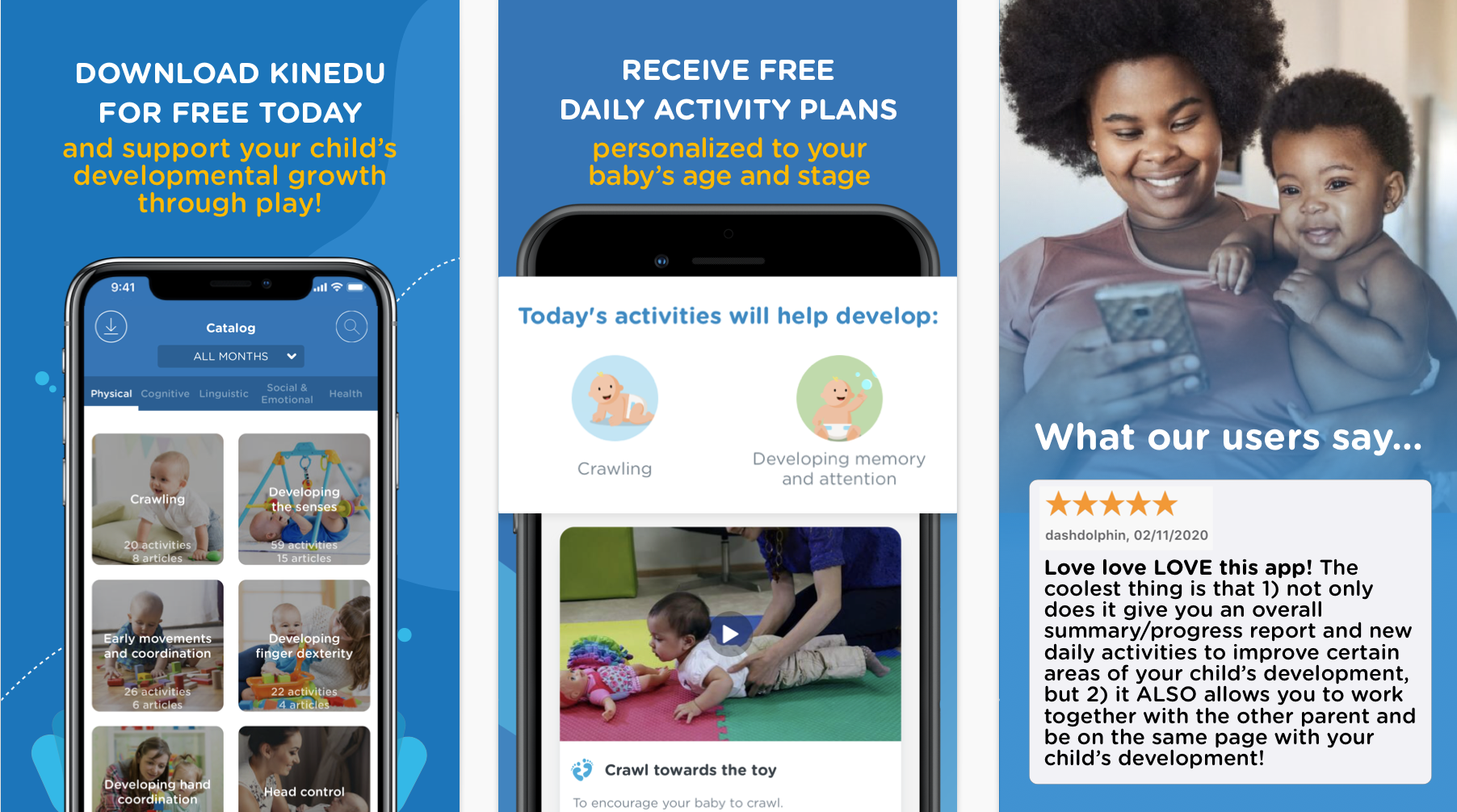Key points:
- Play is crucial for a happy, healthy childhood. Recognizing its decline, the American Academy of Pediatrics recommends “prescriptions for play.” Beyond leisure, play develops fine motor skills and counters ADHD.
- Early childhood play, like peek-a-boo, builds communication foundations. Pediatricians endorse the Kinedu app, offering personalized plans for optimal development in just a few minutes daily.
Why playing with your little one at an early age is the best thing you can do
Scientists know the secret to a happy and healthy life: it’s an enriching upbringing filled with nurturing care, rich language, good nutrition, and play. Research shows that if we give our children these four key experiences during early childhood, it will stick with them for the rest of their lives.
The importance of play, in particular, might seem obvious, but children are playing less and less. So much so, that in 2018 the American Academy of Pediatrics recommended that doctors start writing “prescriptions for play” at check-ups.
Children are biologically hardwired to want to play. It’s how they explore and learn about the world. When a baby grabs a ball, they are building fine motor skills. When you tickle your baby with a feather, you’re helping build your baby’s sense of touch. There’s a developmental incentive associated with play.
How can you support your baby’s development through play?
Play in early childhood doesn’t have to involve toys or puzzles or balls. Especially at a young age, playtime is about meaningful back-and-forth interactions between parent and child. Take peek-a-boo, for example. Repetitive games provide a sense of predictability and order. With peek-a-boo, we’re teaching our children about the relationship between action and response. This is the basis of all communication: I do something, and you do something back.
Pediatricians recommend the Kinedu app, which is a tool for parents who want to support their baby’s development. The app provides daily activity plans personalized for your baby’s age and stage.

Download Kinedu for iPhone or Android now to access 1,800+ playtime activities!
A child’s brain is most malleable when it’s most active: during the first few years of life. We know that healthy brain architecture relies on stimulating early experiences. Experts at Harvard’s Center on the Developing Child have found that whether a child thrives or struggles depends on the relationship they have with the adults in their lives during childhood. Bottom line: It’s the quality not the quantity of time that matters. When we play with a purpose, even if only for five minutes, the better off our children will be.
Quick facts about playtime:
- Talking and interacting with our children is a form of play. The frequency of conversations a baby has at 11 or 14 months of age predicts the number of words a baby will know at age 2 (Did you know Kinedu has been proven to increase the number of conversations parents have with their children if used consistently?).
- Play builds 21st-century skills, including collaboration, problem-solving, and creativity.
- Play helps improve social skills by providing an opportunity for children to read cues, listen to others, and improve their perspective-taking (Mardell et al., 2016).
- Depriving children of play is associated with the increasing prevalence of attention deficit hyperactivity disorder (ADHD).
- Children who play actively for 1 hour per day think more creatively and can multitask.
About Kinedu:
Kinedu is the first application to put the science of play into the hands of parents. We provide at-home learning plans and activities that give children the best start in life.
Riley Stevenson is a writer and teacher from Portland, OR with a Masters in Media Studies and Education. She’s certified as an English as a Foreign Language instructor and Trauma-Informed Care provider. Riley spent five years working as a language arts teacher in Oregon public schools, where she served as a lead curriculum consultant. She’s interested in the development of early language skills, especially in the area of second language acquisition.








